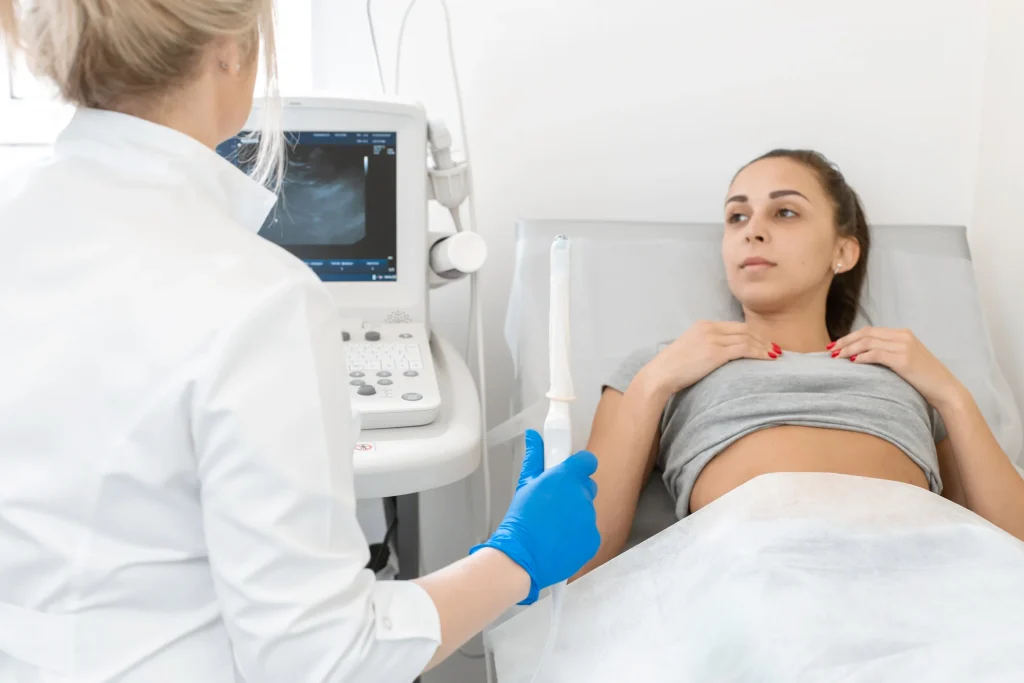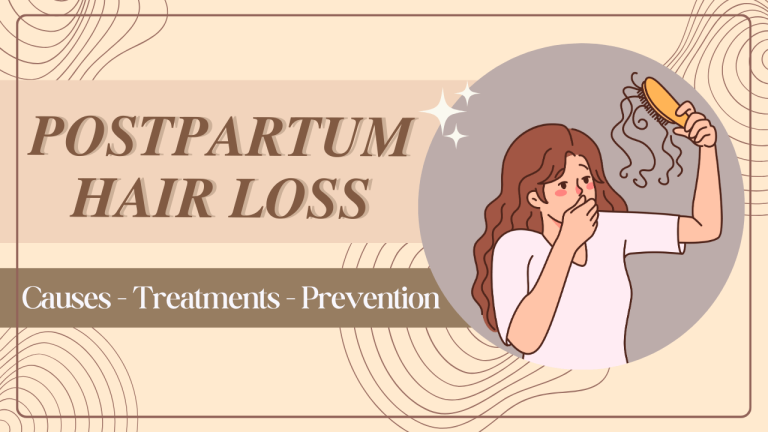
Seeing your loving baby inside your body through an ultrasound is amazing. You can take an ultrasound as early as six weeks. Why do you need to take this early six week ultrasound? What could you expect to know? Is there anything risky?
While it might seem early for a peek at your little miracle, this scan holds immense value for both you and your unborn baby. Six-week ultrasounds can reveal many things to you. This article will be your guide to the 6-week ultrasound experience. Read on to gain a clearer picture of this important early step in your pregnancy journey.
What Is Ultrasound Used In Pregnancy?

Ultrasound is a type of obstetric ultrasonography for doctors to glimpse your body. Imagine using sound waves to create images! That’s exactly how ultrasounds work. A handheld device emits high-frequency sound waves that bounce off your internal organs. These reflected waves are then translated into a picture on a screen, giving doctors a valuable window into what’s going on.
During pregnancy, ultrasounds are a go-to for checking your baby’s development and identifying any potential abnormalities like Down syndrome. They’re non-invasive, painless, and safe for you and your unborn baby.
Why Do You Need A Six Week Ultrasound?
The first medical ultrasound usually can be ordered 11 to 14 weeks of your pregnancy (first trimester). However, there are situations where an earlier ultrasound at 6 weeks might be recommended.
This could be due to your history of pregnancy complications or early miscarriage, concerns related to your age, or medical background. You also will need to take an ultrasound if having vaginal bleeding. Or you just simply want to check whether you are pregnant or not, especially after unprotected sex.
How Will Ultrasound Take At 6 Weeks Pregnant?
You’ll likely have a transvaginal ultrasound instead of the abdominal ultrasound you might have seen before. This is because your baby is still very tiny, and a transvaginal ultrasound offers a clearer picture for your doctor.
Here’s the difference: A traditional abdominal ultrasound uses a wand (transducer) that glides over your belly. A transvaginal ultrasound, however, uses a wand that’s gently inserted into your vagina. While it might not be the most comfortable experience, it shouldn’t cause any pain.
What Will You Know In Your Six Week Ultrasound?

The exciting part is here! If this is your first pregnancy, you may feel both excited and a bit scared to have an early six-week ultrasound. Don’t worry! You are going to see a tiny angel in your belly. And very soon, your baby bump will show up.
Hearing the heartbeat
At this stage, the embryo is still developing and hasn’t formed a complete heart yet. A 6-week ultrasound can detect a fluttering sound – the very early signs of your baby’s heartbeat. This can be a truly emotional moment, offering the first glimpse into your baby’s development.
If you can’t hear the heartbeat, you may not be in the 6th week of pregnancy. The reason is that it can be difficult to define when you start to be pregnant. You can schedule another ultrasound in a couple of weeks.
Size of embryo
At 6 weeks pregnant, your baby is still in the very early stages of development. The baby is just an embryo at the moment. The embryo is the size of a lentil and looks like a small tadpole! Your baby is now enveloped in a thin layer of translucent skin. Therefore, the ultrasound image can not reveal much detail yet. You’ll need to wait a bit longer, typically until 11-12 weeks, to get a more accurate picture of your baby’s development. You can also get identification of the baby’s biological sex, with up to 91% accuracy1.
Location of embryo
One of the crucial things your doctor will look for during a 6-week ultrasound is the location of the embryo. It’s important to confirm that it’s implanted safely within the uterus. An ectopic pregnancy is a serious condition that can’t continue to term and requires immediate medical attention.
Number of embryo
A 6 weeks pregnant ultrasound can sometimes reveal a surprise – twins or even higher-order multiples! However, it’s important to keep in mind that this early stage can be a bit too soon for a definitive diagnosis. The doctor might see signs that suggest multiples, but confirmation might require a follow-up ultrasound in a few weeks.
Yolk sac
During your 6-week ultrasound, you might hear about the yolk sac. This looks like a little balloon nestled inside the gestational sac (where your baby is developing). Your doctor will check the size and shape of the yolk sac, as these are clues about your pregnancy’s health.

Ultrasound works by using sound waves, not radiation, to create an image of your little one nestled inside your womb. This is important because, unlike X-rays, ultrasounds pose no known risks to you or your baby.The National Library of Medicine confirms the safety of ultrasounds throughout all stages of pregnancy. So, you can relax and enjoy the experience of seeing your baby on the screen.
According to the American Congress of Obstetricians and Gynecologists (ACOG), diagnostic ultrasounds have no documented negative effects on the fetus. However, ACOG advises against using ultrasounds for nonmedical purposes because future risks, though currently unconfirmed, might be discovered.
Dr. Monica Mendiola, an expert in women’s health, states that 2D ultrasounds are the safest for pregnant women but should be used in moderation. Most healthy women typically receive two ultrasounds during pregnancy: one in the first trimester to confirm the due date and another between 18 and 22 weeks to check the baby’s anatomy and sex. If these ultrasounds are normal and the mother’s abdomen measures correctly, no further scans are needed.
However, if issues arise in these initial scans or if the fetus size is inconsistent, additional ultrasounds may be necessary. Women with medical conditions like diabetes or hypertension will also require more frequent scans.
It might be a little early to see all the tiny details of your unborn baby. However, a six-week ultrasound is valuable prenatal care that can help to keep you and your growing baby on the healthy track.
Don’t hesitate to bring a supportive friend or partner along for moral cheer. Relax, take a deep breath, and enjoy this special moment of seeing your baby for the first time!
Sources
- Gharekhanloo, F. (2018) The ultrasound identification of fetal gender at the gestational age of 11-12 weeks, Journal of family medicine and primary care. Available at: https://www.ncbi.nlm.nih.gov/pmc/articles/PMC5958571/ ↩︎






